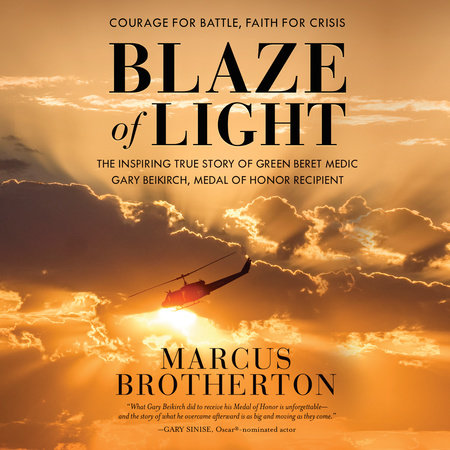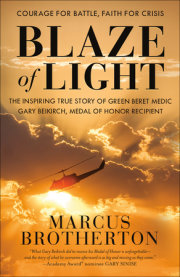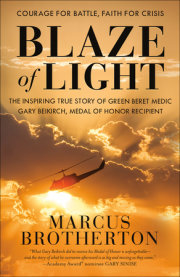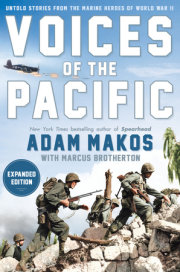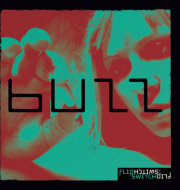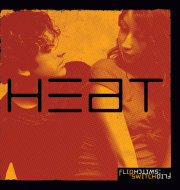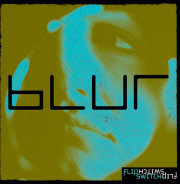Five decades later, Gary still recalls the grit of debris in the air. He can smell the smoke. Hear the screams. But the exact sequence of events from that explosion onward isn’t precise in his mind. To him it’s like writing down each incident that happened during the siege of Dak Seang on its own playing card. You throw the deck high in the air, scattering the cards. Gary can pick up each card and tell you about it, but he can’t place them in order. When he recounts the events, he works to place them in the sequence that seems most logical. Eyewitness accounts and after-action reports help fill in any blanks.
After the debris settled and he realized he was not wounded, Gary leaped to his feet and started running back to the medical bunker. He reached a wall and started to climb over, then saw Pher, the medic who loved kids so much, the man who’d helped with the water buffalo incident. Pher lay facedown on the ground. Gary ran to him and turned him over. A rocket blast had ripped apart the young man’s chest, but he was still breathing. A big, sucking chest wound. Gary could see the air escaping and the blood running out. Gary needed to quickly cover Pher’s chest with an airtight seal. His mind scrambled to think of something he could use. Maybe the large plastic bags that came wrapped around the camp’s artillery shells. He did what he could for Pher in the moment. “I’ll be right back!” he yelled.
Gary sprinted across the open yard and made it into the inner security area, where the team house, barracks, and dispensary used to stand. He grabbed several large plastic bags and headed outside again. Gary heard another rocket whistling in. He hit the ground and waited for the blast. Kaboom! The ground shook.
As dirt and debris settled from the explosion, Gary scrambled up and ran back to Pher with the bags but, when he reached him, Pher was already dead.
Gary spotted a Montagnard who’d been leveled by the last rocket, although he was still alive. Gary ran to him and saw that the man had multiple wounds to his legs, arms, and chest. His entire body was riddled with shrapnel. Before Gary could do anything to help him, he heard another rocket whistling. By the sound it was making, he knew this one would hit close—really close. Gary threw his body on top of the young man and braced for the explosion. The world turned hazy and high pitched. The rocket exploded. Hot shards of metal entered Gary’s body and hit his spine.
Nothing he’d ever experienced had felt like this. Decades later, he tried to explain the feeling of being hit. Before the siege, at the hospital in Pleiku, Gary had visited a Montagnard who had a high fever and a serious infection. The doctor there had done a bone marrow tap, and he’d invited Gary to watch the procedure. Two instruments were involved—the first looked like a hollow screwdriver, and the second was an actual hammer. The doctor anesthetized the patient’s skin at the point of the tap and explained that the first instrument would go directly into the bone and that the patient would feel momentary intense pain. “Don’t worry,” the doctor added. “This will hurt but only for a second. And then you’ll pass out.”
That’s what Gary experienced on the battlefield. One moment of intense, incredible pain that temporarily shut down his body. He may have passed out. Or maybe he wavered between consciousness and unconsciousness, because Gary does remember that during the blast a powerful hurricane-like force picked him up and threw him. While in midair, three thoughts flashed through his mind—wild thoughts that mirrored the craziness of being blown up:
I wonder if this is what it feels like to be kicked by a horse.
Hey, Purple Heart. I hope I live long enough to receive it.
I’m going to die here. Today.
As he flew through the air, Gary’s spirit seemed to separate from his body. He remembers being outside his body, watching himself soaring head over heels and landing in the 4.2-inch mortar pit. As his body hit the sandbags that ringed the pit, his spirit reentered his body. He became aware again of who he was and that he was still alive. He didn’t feel the intense pain of a moment ago. He thudded against the sandbags and rolled facedown. A moment passed. Another. He tried to move. Head. Neck. Arms. Hands. Upper body. Everything in that sequence moved. Then he tried to move his legs. Nothing. He tried his legs again. He willed them to move. Legs!
Legs?
Gary was paralyzed from the waist down. He craned his neck, searching for the wounded Montagnard, the one he had sheltered moments ago. The schoolhouse near where the man had lain was now a pile of concrete and timbers. Gary’s gaze raked the area, but he couldn’t find the young man to see how he was doing. He searched the area again; then it dawned on him. Parts of a body were spread across the ground. A streak of raw hamburger in the dirt. Gary’s mind swirled—I was on top of him when the blast occurred. To protect him! How did I survive when he didn’t?
He could feel water all around him and saw he was lying in mud. Mud wasn’t normal in that area of the camp, and he concluded the enemy had probably hit the water tanks and purification tubs. Each could hold several thousand gallons, and they were always kept full of water.
In the distance he heard machine gun and automatic rifle fire . . . a ground assault was coming. The enemy would pour into the camp soon. He tried to stand so he could move into the pit and fire the mortar again, but he remained on his stomach on the ground. Already he’d forgotten that he couldn’t use his legs.
As he lay in the dirt, he felt blood seeping out of his wounds. A moment of utter helplessness. Two moments. Three. His mind churned. What good is a paralyzed medic on the battlefield?
Suddenly, he felt hands under his armpits, strong hands lifting him. Gary heard his bodyguard’s familiar voice next to his ear. Deo was there, standing, holding Gary upright. Gary threw an arm around Deo’s shoulders. Gary was five feet, eleven inches tall and weighed 193 pounds. Deo was a full head and shoulders shorter than Gary. The boy began dragging Gary toward the underground medical bunker.
“Deo . . . what are you doing here? How did you find me?”
“This is where I belong, Bac Si . . . with you.” Deo’s voice was surprisingly calm.
As the two young men made their way toward the opening of the bunker, another rocket whistled in. Deo dropped Gary and covered him with his body. The explosion shook the earth. Deo stood, hoisted Gary again, and dragged him farther. In another ten feet another rocket flew in. Again Deo dropped Gary and covered his body. The ground erupted. Again Deo stood, picked up Gary, and dragged him nearer to safety. A third time this happened. They were close to the bunker now.
The air was full of bullets from machine gun and automatic rifle fire. The artillery, rocket, and mortar fire had increased. Dust and noise and bullets and smoke were everywhere. Nearby a Montagnard fighter lay wounded. Gary motioned for Deo to drag him closer to the man. He had a chest wound and wasn’t breathing. Gary sat near the man, placed pressure on his gunshot wound, and began mouth-to-mouth resuscitation. He paused long enough to utter two words to Deo: “Pull us!”
Somehow Deo pulled both Gary and the man toward the medical bunker. As out of place as it might sound in that moment of chaos and valor, while still giving mouth-to-mouth resuscitation, Gary noticed that his pants were shredded and falling down.
As a rule, most Green Berets didn’t wear underwear because of heat and chafing, and in his mind’s eye Gary imagined how funny he must look in the middle of a battle, all his private matters blowing in the wind. He quickly yanked his pants back up and secured them with a bandage.
Safely inside the underground bunker, Gary saw Sergeant Dan Noonan—the Green Berets’ newest medic. He was triaging the wounded and directing some of the Montagnard medics in how to treat patients. Nearby lay a Montagnard who’d had his leg blown off. Dan was trying to tie off bleeders. He’d been on site for only about two days and was scheduled to relieve Gary fully when his R & R started on April 10.
Dan saw Gary and ran over to begin treatment, but Gary pushed him away. “Work on the others first,” Gary yelled above the intense noise. “I’m okay.”
“You sure?” Dan asked.
“You got things under control here?”
“Yeah. I got it all set.” Dan motioned to the man missing a leg. “This one’s okay.” Gary nodded, and Dan left to work on another of the wounded. Gary looked around the bunker for Deo. He was close by.
“What do you need, Bac Si?” Deo asked. “Anything?”
Gary didn’t answer directly. He looked into the young man’s eyes and held them for a moment. The teenager’s face showed no fear, only purpose. A sense of mission. They both knew there was much more work to be done.
“Deo . . .” Gary said. “Take me back outside.”
Copyright © 2020 by Marcus Brotherton. All rights reserved. No part of this excerpt may be reproduced or reprinted without permission in writing from the publisher.

